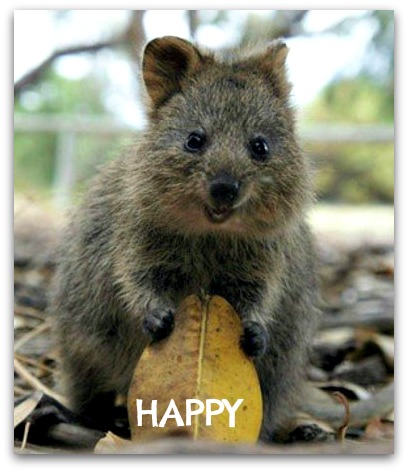As far as cuteness is concerned, cats rule the internet. But a little Australian creature could give kitties a run for their money.

Quokka don’t fear humans, and seem to even love having their photos taken. But this friendliness can get them in trouble. Their easygoing nature has made them easy prey for for the larger mammals that roam Australia. Dingoes and foxes, in particular, love to eat these babies. Worse than those predators: teenagers. In the ‘90s, some local hoodlums were caught using the poor animals as soccer balls and hockey pucks. In 1996, to help curb the emerging fad of “quokka soccer,” the Western Australian government imposed a hefty fine on anybody caught giving one the boot.
While kangaroos and koalas are typically what spring to mind when people think of Australian animals, the quokka was among the first mammals that European explorers discovered when they first reached the continent in the 17th century. Dutch seafarer Samuel Volckertzoon wrote about spotting a small “wild cat” on Rottnest Island in 1658. It was probably a quokka. The island’s name, in fact, comes from a similar mistake. The Dutch sea captain Willem de Vlamingh came across some and thought they were rats. He dubbed the island a “rat’s nest” in his native tongue, and the name stuck.
Quokkas aren’t included on any endangered species lists (yet) but they are classified as “vulnerable.” In addition to being a tasty treat for predators, deforestation has decreased their native habitat. Fortunately, conservation efforts have helped boost their numbers, as have their mating habits. The quokkas are, apparently, even more friendly with each other than they are with humans. After giving birth, they tend to start mating again within a day or so. (Maybe that’s why they’re so happy.)







